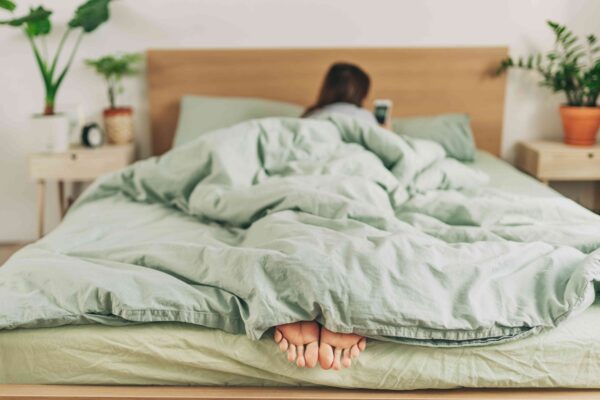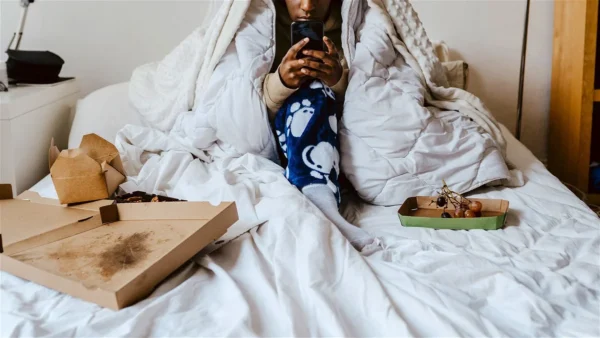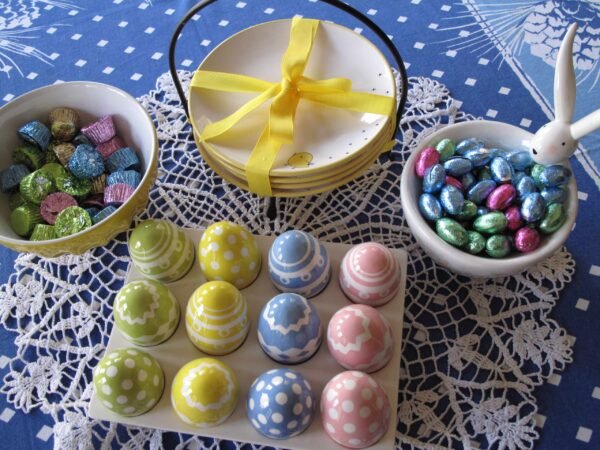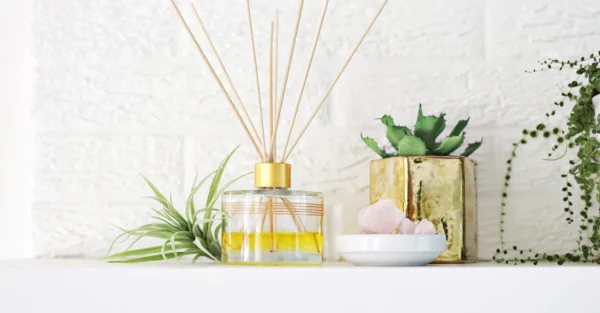
‘Bed Rotting’: The Internet’s New Trend For Self-Care

In the ever-evolving landscape of internet trends, a new phenomenon has emerged that resonates particularly with the younger generation: ‘bed rotting’. This term, coined and popularised by Gen Z, encapsulates the essence of taking a much-needed break from the hustle and bustle of everyday life by indulging in extended periods of rest in bed.
So, what exactly does ‘bed rotting’ entail, and why has it become the internet’s latest favourite form of unwinding?
From duvet days to bed rotting: A modern evolution
Bed rotting is the practice of spending long hours in bed, typically during the day, often accompanied by snacks, electronic devices, and a mindset geared towards disengaging from daily stresses. This trend, which is essentially an evolution of the familiar ‘duvet day’, has gained traction as a form of voluntary retreat from the demands of modern life. The term itself might sound unappealing, but for many, the act helps prioritise one’s mental and emotional well-being.
Traditionally, ‘duvet days’ were associated with taking a day off to stay in bed and recuperate, usually in response to feeling under the weather or mentally exhausted. However, ‘bed rotting’ has emerged as a more deliberate and extended version of this concept. According to Spot, it involves “the practice of spending many hours in bed during the day, often with snacks or an electronic device, as a voluntary retreat from activity or stress.”
How to spend an extended stay in bed
The allure of bed rotting lies in its simplicity and accessibility; it offers a straightforward way to disconnect from the outside world and recharge. The activities associated with bed rotting are as passive as they come. Individuals might find themselves lounging in bed or on the couch for hours, engaging in activities that require minimal effort.
The bed rotting trend is more than just lying down; it’s about creating a personalised retreat that caters to relaxation and comfort. Those who embrace this trend transform their beds into multi-functional sanctuaries where they can spend extended periods without the need to get up.
- From TV bingeing to Kindle comforts
Bed rotters often engage in activities that require minimal physical effort and offer maximum comfort. These activities include binge-watching TV shows or movies, mindlessly scrolling through social media feeds, and reading books or articles on their tablets or e-readers. The key is to partake in passive activities that allow the mind to drift and unwind without any pressure.
Streaming platforms have become a bed-rotter’s best friend, providing endless content to keep them entertained. Similarly, social media platforms like TikTok, Instagram, and Twitter offer an infinite scroll of videos, memes, and posts to consume. For those who prefer a quieter form of entertainment, e-readers and audiobooks provide a way to get lost in stories without the strain of holding a physical book.
- Snacks, accessories & cosy bedding
To make the bed rotting experience as seamless and enjoyable as possible, certain essentials have become popular. Such items help enhance comfort and convenience, making it easier to stay in bed for extended periods. For avid readers, e-reader remotes and holders have quickly become popular for minimal effort reading in bed. They eliminate the need to constantly tap or swipe on a device, and even the need for holding it, making it easier to enjoy a good book without lifting a finger.
Coffee mug warmers and cup/snack caddies have also proven to be popular accessories for rotting in bed, keeping snacks and drinks within arm’s reach and minimising the need to get up. As well as the right accessories, creating a comfortable environment is key to spending long periods in bed. Many people invest in comfortable duvets and throws, pillows, and cushions, to make their bed the ultimate relaxation spot. Some even go as far as to incorporate face masks and other skincare products into their routine, turning their bed-rotting sessions into a spa-like retreat.
Bed rotting: Self-care or health risk?

The concept of bed rotting, while seemingly indulgent and comforting, raises questions about its impact on health. Like many self-care practices, it can offer significant benefits when done in moderation but may pose risks if overdone.
For many, bed rotting serves as a form of self-care, providing a much-needed break from the relentless pace of modern life. It offers an opportunity to disconnect from daily stresses and recharge mentally and physically. Doctors acknowledge that in moderation, this practice can be an acceptable way to deal with burnout. By taking time out to rest and relax, individuals can prevent stress from escalating and can return to their routines feeling refreshed and re-energised.
However, bed rotting is not without its potential downsides. Medical professionals caution that excessive time spent in bed can have adverse effects on both mental and physical health. One significant concern is that it can lead to increased stress and anxiety if used as a means of avoiding responsibilities or procrastinating on important tasks. The act of staying in bed might provide temporary relief, but it can create more stress in the long run when reality eventually catches up.
Furthermore, doctors warn that bed rotting can be a sign of deteriorating mental health. Spending too much time in bed can be indicative of depression, especially if accompanied by feelings of hopelessness or a lack of motivation to engage in daily activities. The line between self-care and self-neglect can be thin, and it’s essential to recognise when bed rotting is no longer serving a beneficial purpose.
Balancing bed rotting for optimal well-being
The key to reaping the benefits of bed rotting while avoiding its pitfalls lies in moderation. It’s crucial to listen to one’s body and mind, recognising when a restful day in bed is genuinely needed versus when it’s becoming a crutch for avoiding life’s challenges. When done mindfully, it can be a valuable tool for managing stress and promoting relaxation.











































